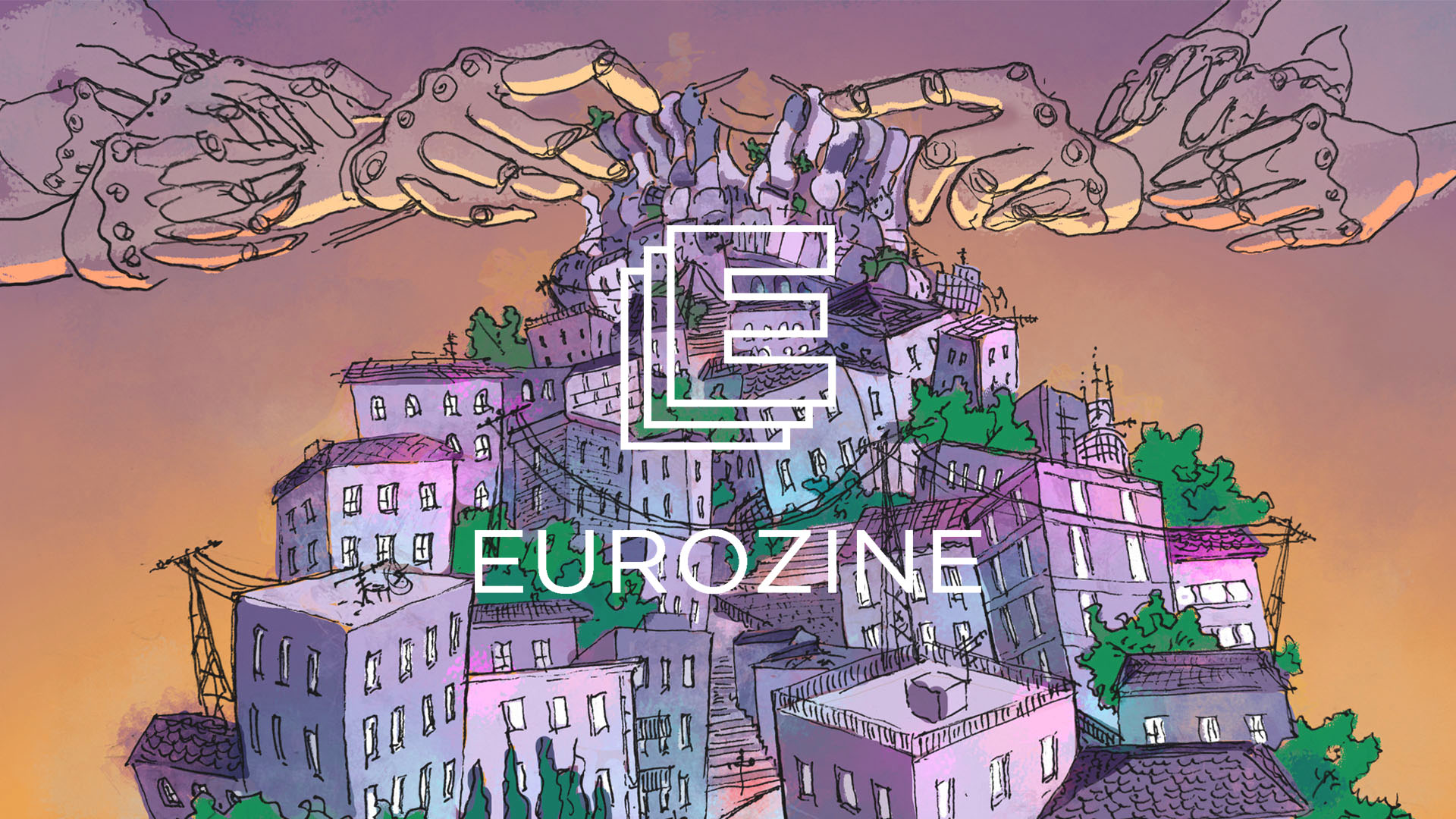
Trump returns to the White House at a time when the global stakes are higher than ever. What can be expected from his unpredictable foreign policy, and what does this mean for international solidarity, geopolitical stability and democratic values?
Housing is part of the foundation upon which all other human social relations are built. Like sustenance and sex, society can’t be reproduced without shelter. Vikerkaar editor Aro Velmet announces the new Eurozine focal point ‘Room temperature: Housing in crisis’.

Illustration by Ismail Berkel
There are many ways to think about the housing crisis. Here’s one: in 1960 the average worker would have had to set aside three years’ wages to afford a house in London; by 2014 they would have needed twelve years. Here’s another: in Berlin, where the vast majority rent their homes, average prices have doubled over the past decade, leading the city to declare a five-year rent freeze. Over the same period, homelessness has also more than doubled in both Germany and the UK, with the rest of Europe not far behind. Everywhere you look, somebody is losing out.
Housing is part of the foundation upon which all other human social relations are built. Like sustenance and sex, society can’t be reproduced without shelter. That is why the crisis is so central. The cost of housing makes the difference between who can walk to work in minutes and who has to commute, sometimes for hours. During the corona pandemic, it determines one’s ability to reconcile the demands of Zoom with those of family members or roommates – assuming one even has the choice to stay at home.
If, during the pandemic, leaving one’s home carries with it considerable risk, staying in can be risky too – as many denizens of Parisian chambres de bonne tragically discovered during the 2003 heatwave, and as those struggling with ‘sick building syndrome’ know from daily experience. As housing becomes an attractive investment for private-equity firms catering to the ultra-wealthy, some are making a killing, while others are quite literally being killed.
In collaboration with the Austrian urbanist magazine dérive and the Estonian cultural monthly Vikerkaar, Eurozine has launched the focal point Room temperature: Housing in crisis. Contributions will look at both the winners and the losers: the people profiting from the financialization of housing; and those constructing alternatives to ‘the market’ in the form of tenants’ movements, reimagining the right to the city.
As the LA-based collective School of Echoes writes, tenants have become the twenty-first century proletariat: those who ‘confront capital most directly and with the greatest chance of success at the site of value extraction’. Stavros Stavrides, meanwhile, argues for incorporating an active element into the concept of the commons: ‘Contemporary endeavours to re-appropriate the city are not only a product shared by everyone, but also a process developed by everyone through sharing.’
Understanding the housing crisis also requires knowledge over time. It is a crisis contained in the transformation of working-class housing from the turn of the last century into gentrified apartments for start-up entrepreneurs in the 2010s. It is contained in the twenty-five year mortgage, the standard length in most of Europe. And it is contained in the decade or so that it has taken for rents to double in major European cities.
Contributions from the forthcoming issue of Vikerkaar will discuss the reimagining of Ottoman imperial architecture in the Balkans, the legacy of private housing during late socialism and – turning to the future – how housing might be reimagined for the Anthropocene. These and more will be appearing in English translation in Eurozine in the coming weeks. To keep track of all new contributions, subscribe to the Eurozine Newsletter – and turn on notifications on our homepage!
This editorial is part of our 10/2020 newsletter. Subscribe to get the weekly updates about our latest publications and reviews of our partner journals.
Published 28 May 2020
Original in English
First published by Eurozine
Contributed by Vikerkaar © Aro Velmet / Eurozine
PDF/PRINTSubscribe to know what’s worth thinking about.

Trump returns to the White House at a time when the global stakes are higher than ever. What can be expected from his unpredictable foreign policy, and what does this mean for international solidarity, geopolitical stability and democratic values?

The difference between knowing from distance that war is being waged and living that reality couldn’t be more extreme. But can awareness of multiple repercussions turn protective disassociation from violence into active solidarity? ‘The Most Documented War’ symposium in Lviv, Ukraine, provides valuable pointers regarding engagement and responsibility.